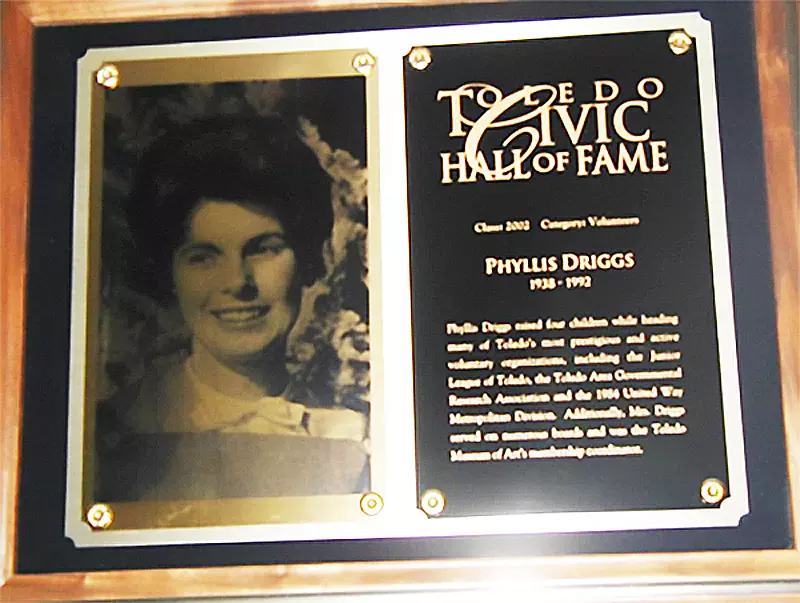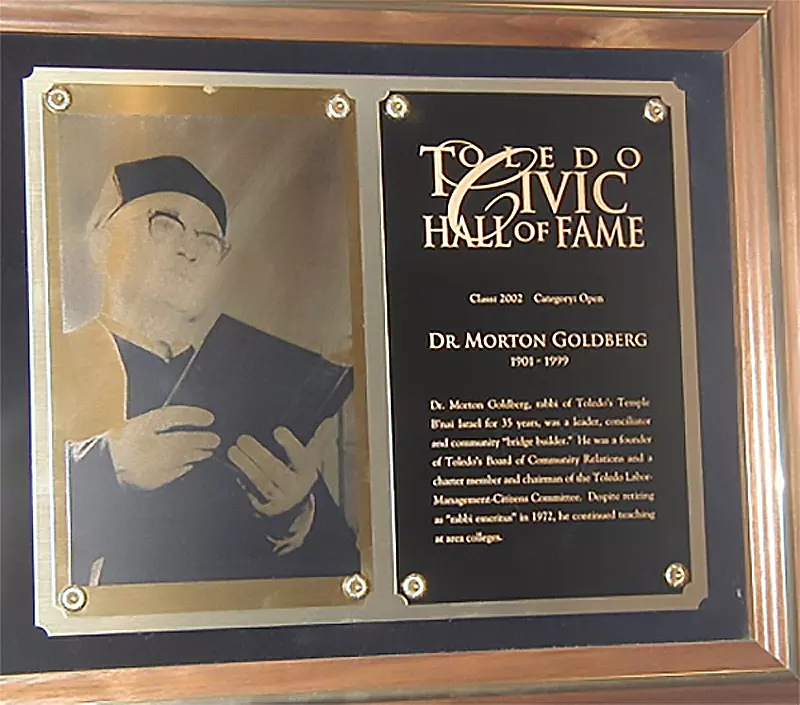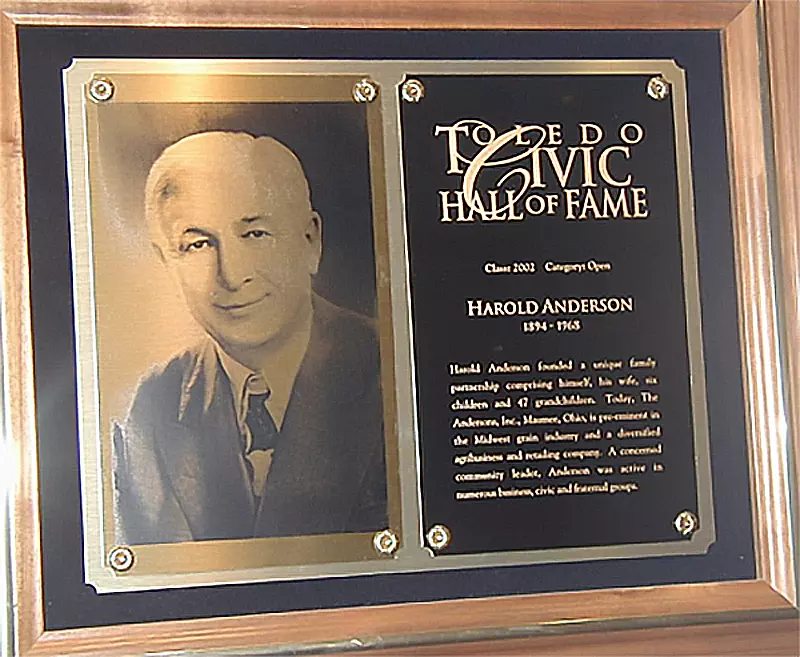2002 Inductees
Harold Anderson (1894-1968)
Anderson was born in Saint Louis, but moved to Toledo in 1908 and graduated from Toledo Central High School. He attended the University of Wisconsin for three years before enlisting as a pilot in World War I. Following the war, he worked for the National Milling Company and succeeded his father as general manager in 1927. In 1936 he formed the Anderson Elevator Company with his wife, father, and others, on their family farm in Maumee. The Toledo area's prime shipping location supported the company's expansion, which included the elevators, a warehouse market, a manufacturing division, a feed division, and Anderson Cob Mills, Inc. Anderson's belief that people of means should invest in their community was evidenced by his numerous civic activities. He was on the board of St. Vincent's Hospital, the Greater Toledo Community Chest, and the Council of Social Agencies. He was a particularly strong supporter of the YMCA, having served as president and participating in numerous fund-raising campaigns.
Phyllis (Fox) Driggs (1938-1992), Volunteer
 Phyllis (Fox) Driggs (1938-1992)
Phyllis (Fox) Driggs (1938-1992)
Driggs was born in Adrian, Michigan and graduated from Adrian College. She taught speech in Toledo high schools and raised four children with her husband, Howard. She worked as coordinator of membership services for the Toledo Museum of Art from 1986 to 1992. Her tireless volunteer spirit aided several area civic organizations. She was 1984 United Way Metropolitan Division chairperson, and served as president of the Junior League of Toledo. She was on the board of WGTE-TV and chaired its auction. She also served on the boards of Adrian College, the Crosby Gardens, and Riverside Hospital. Her husband recalled that "She loved Toledo and she wanted to make it a better place for everybody".
Dr. Morton Goldberg (1901-1999)
 Dr. Morton Goldberg (1901-1999)
Dr. Morton Goldberg (1901-1999)
Dr. Goldberg was Rabbi for 36 years of Temple B'nai Israel, Toledo's Conservative Synagogue. He was born in Poland and came to Pittsburgh as a boy with his parents. Educated at Jewish Theological Seminary in New York, Brown University, and Webster University in Delaware, he first served in Fall River, MA, where he met his wife, Doris. Their 68-year marriage enriched their respective careers as rabbi and writer. Rabbi Goldberg believed that to serve his own congregation, he needed to serve his wider community. Upon coming to Temple B' nai Israel in 1937, he soon became active in community affairs. He was one of the "Three Musketeers", including 1998 inductee Ella Stewart, and Director of Catholic Charities Msgr. Michael Doyle, who met with business leaders in the mid-1930's to discourage discrimination. Rabbi Goldberg is largely credited with founding the Board of Community Relations in 1946, which continues to investigate and mediate civil rights issues today. He was also a charter member of the Toledo Labor-Management Citizens Committee, and only dined at unionized restaurants. Rabbi Goldberg also served as president of the Toledo Board of Education, and on numerous other boards.
David Ross Locke (1833-1888)
A native of New York State, Locke was apprenticed to the Courtland Democrat at age ten, where he learned the newspaper business. He worked for papers in Pittsburgh and Ohio, until he became owner and editor of the Findley Jeffersonian. He developed a deep hatred of slavery from his abolitionist father and his own observations. In 1865, accompanied by his wife and three sons, he arrived by covered wagon in Toledo to take on his new job as editor of The Toledo Blade. Beginning in 1861, Locke published letters in his papers under the name Petroleum V. Nasby, using sarcasm and wit to support his favorite causes: the Republican Party, abolition, and the Union. Locke's nearly daily Nasby letters earned him national recognition and led to frequent speaking tours. His son, Robinson, accompanied him on some of these trips and succeeded him as Blade editor. He befriended his contemporary humorist, Mark Twain, and was a favorite writer of Abraham Lincoln. Presidents Lincoln and Grant failed to persuade Locke to take diplomatic appointments in their administrations. Despite his decline from tuberculosis, his support for the temperance movement led him to become a Toledo alderman in 1886, a position he held when he died. He was honored by The Society of Professional Journalists in 1978 as one of America's historic individuals in journalism.

